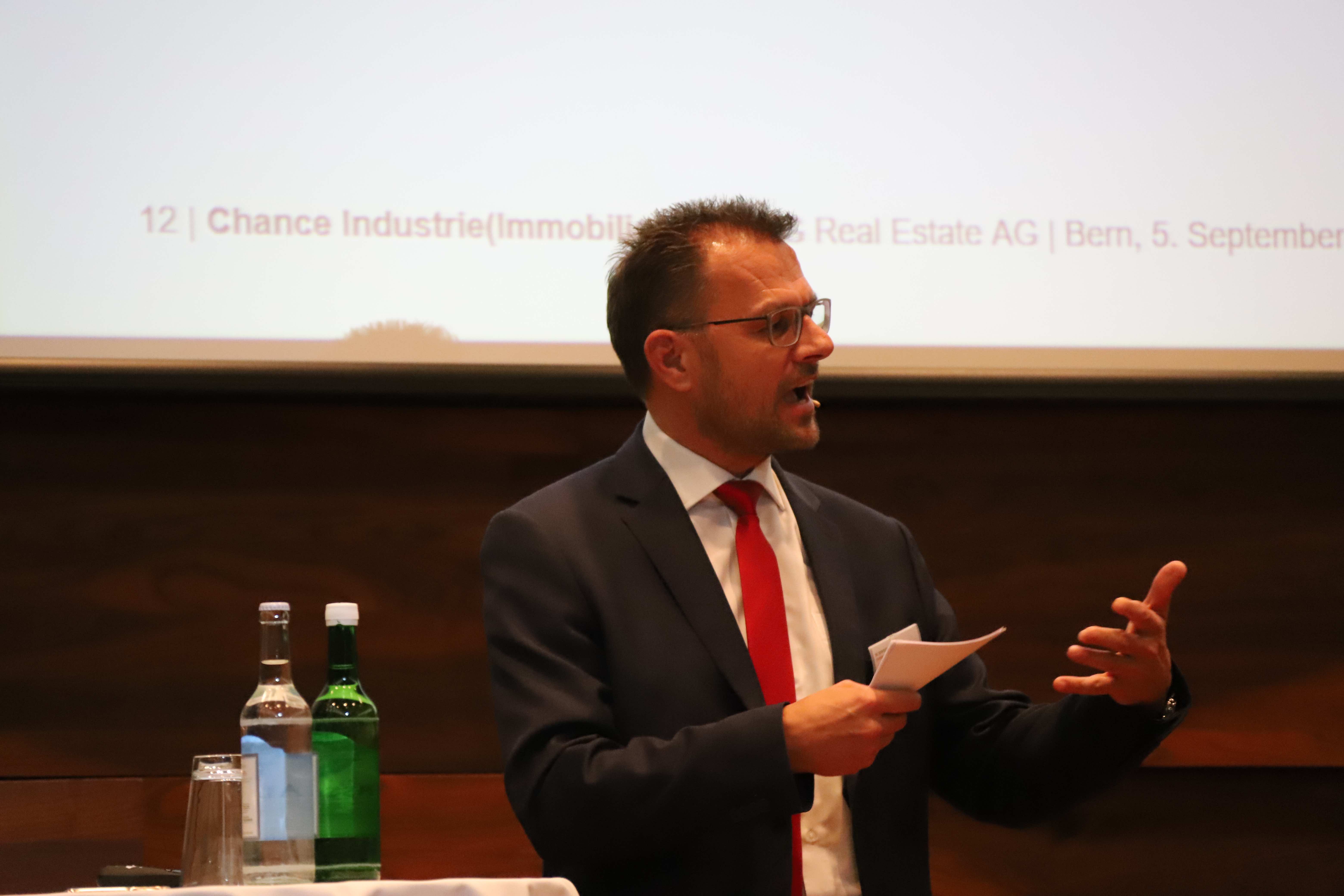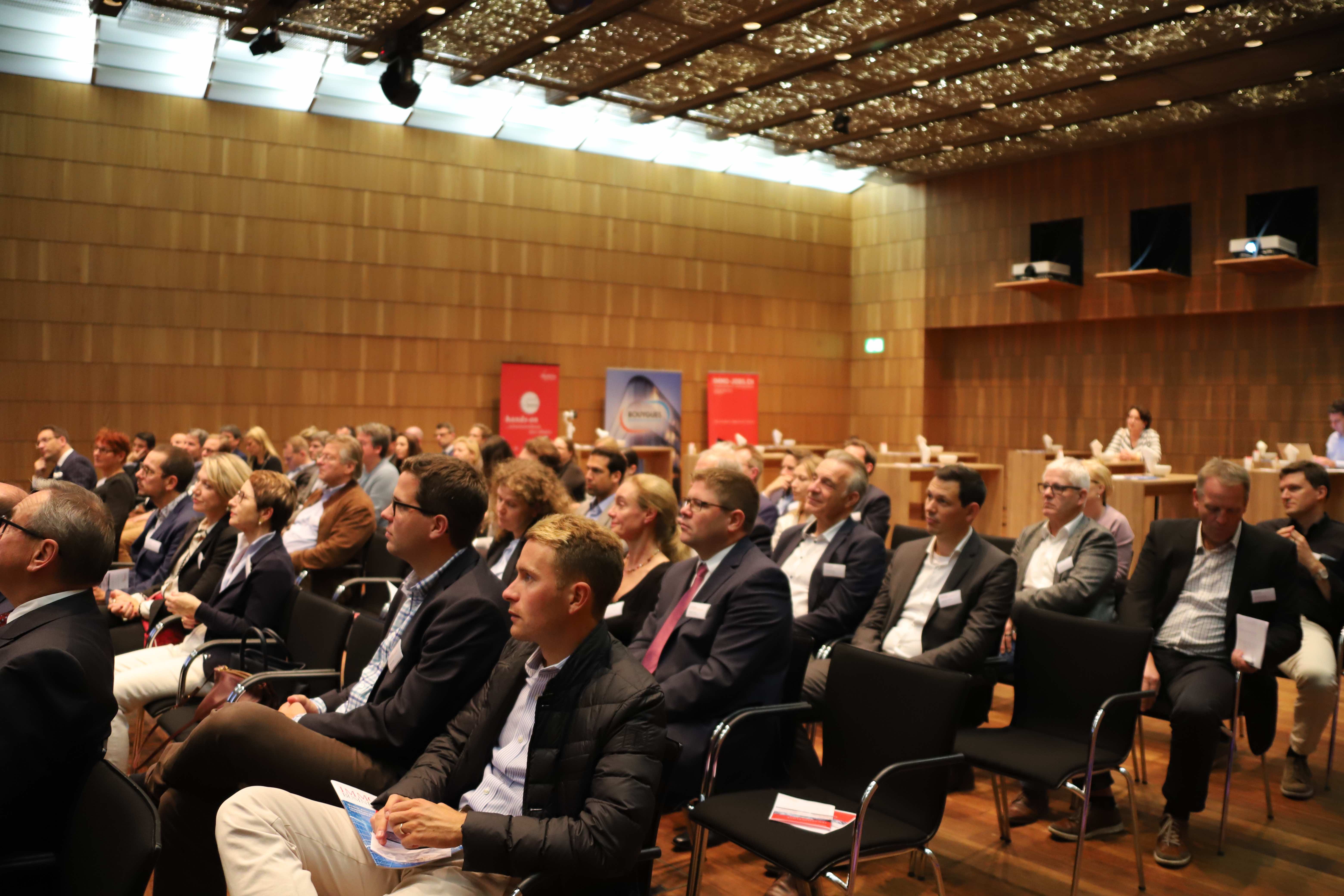Review 77th Swiss Real Estate Conference: "Switzerland as an industrial location: opportunities for real estate investors".
At the most recent Swiss Real Estate Talk, the topic was the Swiss industrial location. Three top-class experts assessed the asset class and the domestic industrial location from their respective perspectives.

"To what extent is Switzerland still attractive for industry?" asked Dr. Markus Schmidiger, Head of Studies in Real Estate Management at the Lucerne University of Applied Sciences and Arts (HSLU) and moderator of the 77th Swiss Real Estate Talk with the topic "Switzerland as an industrial location: opportunities for real estate investors" at the Metropol in Zurich. The country is characterised by a rich industrial tradition. However, rising labour and land prices are having a negative impact on industry, as many companies are being driven further and further out to the periphery or are migrating abroad.
"Switzerland as an attractive workplace
For Hans Rudolf Hauri, CEO of RUAG Real Estate and the evening's first speaker, Switzerland's value as a business location has not diminished. In terms of the value of industrial real estate, the market knows only one direction: up. "Prices are going up because Switzerland has so little space," Hauri said. The sector has consistently employed around one million people since 2007. The share of industry in the Swiss economy is around 25 percent, which is "surprisingly high". By way of comparison, in neighbouring Germany this figure is around 30 percent. Switzerland offers high living standards for skilled workers moving to the country and good framework conditions for industrial companies. The attractiveness of the Swiss Confederation is also reflected in its high level of training expertise.
But in Hauri's view, Switzerland is doing far too little to retain industry: "In fact, it's doing nothing at all". Yet the country is virtually predestined as a location for trade and industry. What is important are good logistics routes, flexible architecture and understanding landlords and operators of industrial sites. Switzerland has all of this. But federalist spatial planning hinders more than it helps and supports. In Hauri's view, Switzerland as a business location can benefit in the future if more regional and not just municipal business and industrial parks are created.
"Abandon silo thinking"
Stéphane Schneider, CEO of Bouygues Energies & Services, used the example of commercial and special properties, such as the UpTown site development in Arlesheim (near Basel) or the new construction of hospitals, to highlight what is already possible today in terms of digital networking, connectivity and the use of sensor technology. He pleaded for the industry to abandon silo thinking. "What is needed is cross-trade collaboration from a single source." Holistic property management also simplifies many things and reduces costs, he said. He also emphasized the importance of BIM Building Information Modeling for new buildings. Not only in planning or construction, but also later in management. The new data center at Zurich Airport, for example, is an example of a modern data center. It was the first of its kind to be built using modular timber construction and can be flexibly expanded. According to Schneider, new innovations and technologies will make it possible to offer networked infrastructures across entire areas, quarters or even cities in the future.
"Corporate real estate is a growth market"
Steffen Uttich, Head of Capital Markets at Beos AG, which has been part of the Swiss Life Group since mid-2018, took a look at the German commercial and industrial property market. There, the volume of space in this segment comprises 2.4 billion square metres, which accounts for a share of more than 50% of the total space market and thus illustrates its importance. Uttich also quoted impressive figures for the market value of these properties: In total, this most recently amounted to 1,038 billion euros in Germany; while all other property types brought it to a total value of around 1,050 billion euros. "Over the past 20 years, corporate real estate has achieved distributions that are around 200 basis points higher than those of other types of use, while at the same time being less volatile," says Uttich. Even in the current uncertain times for real estate markets, corporate real estate has proven to be a growth market that reacts relatively calmly to economic fluctuations.
Beos AG, which was founded in 2010, has accompanied the development and change from an owner's to a tenant's market for industrial real estate in Germany over the past decade. In Uttich's opinion, multi-tenant properties in particular are the model of the future here. Similar to Hauri at the beginning, he pointed out that properties must be flexible in their use. "In the end, it is the third-party usability that determines the success of a property." The maxim for this type of property is therefore not "location, location, location", but "user, user, user". An essential factor is the proximity to the customer and the exchange with him. This is part of today's professional asset management.
Here you can download the individual presentations of the speakers:
Next real estate talk on the topic of sustainability
Moderator Markus Schmidiger concluded the successful event evening with a reference to the upcoming 78th Swiss Real Estate Talk. Then the topic will be sustainability in the industry and the question will be asked: "How sustainable is sustainable real estate?" The date of the event is Thursday, November 7, 2019, and more information will be available soon at the following link: www.immobiliengespraeche.ch/78/















